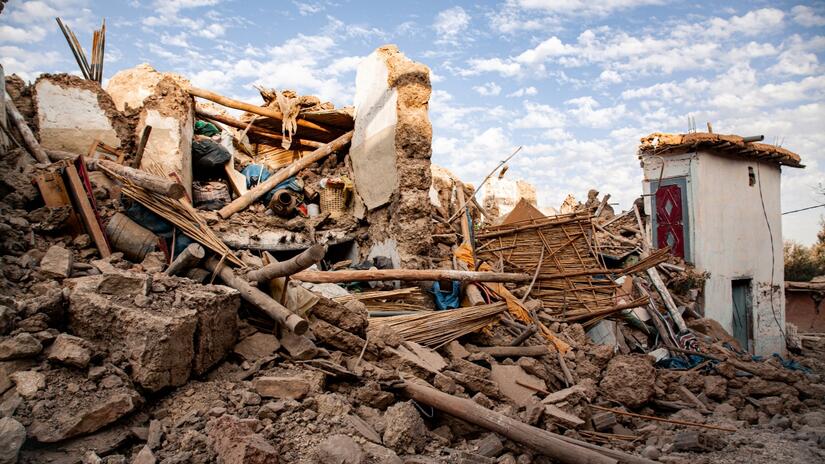
October 2, 2023
On September 8, 2023, a magnitude 6.8 earthquake struck central Morocco, resulting in 2,862 fatalities and approximately 6,000 injuries. The earthquake primarily affected the rural areas of the High Atlas Mountains, causing landslides, collapses, and extensive damage to numerous roads. Access to isolated rural villages became even more challenging.
In response to the urgent needs, MSF (Médecins Sans Frontières or Doctors Without Borders) teams are implementing a psychological support program for the affected populations, healthcare workers, and volunteers who have been working in the aftermath of the earthquake.
Immediately following the earthquake on September 9, MSF dispatched emergency teams to assess the humanitarian and medical situation in the hardest-hit areas, particularly in the provinces of Al Haouz, Taroudant, and Chichaoua. Five MSF teams assessed a total of 30 sites.
The overall response from Moroccan authorities, bilateral partners, and the Moroccan people has been remarkable. The Moroccan Ministry of Health, the military, and civil protection swiftly mobilized their emergency response plans. The establishment of advanced medical posts, field hospitals, and transfer capabilities was crucial to ensure urgent medical and humanitarian response within tight timelines.
“We saw entire villages destroyed, roads collapsing, and electricity cut off,” explained Fouzia Bara, an MSF nurse who was part of the first MSF teams in Morocco. “Despite this, Moroccan authorities, with the support of certain states, managed to rescue people from the rubble, treat the injured, use helicopters to transport the injured from remote areas, and distribute food and other supplies to those affected.”
MSF teams noted the comprehensiveness of the Moroccan government’s response and identified very few gaps. In addition to this assessment, MSF teams conducted six targeted donations between September 12 and 17, addressing specific needs expressed at the time by health centers or hospitals. These targeted donations were coordinated with Moroccan authorities and included medical equipment and medicines, such as injectable medications, painkillers, antibiotics, insulin, and medical supplies.
The individuals most severely affected by this crisis require urgent psychological support. This includes search and rescue teams and frontline volunteers. MSF teams have spoken to dozens of distressed women and men in heavily affected areas at all assessed sites. Most have lost family members or friends, or have witnessed their homes and villages reduced to rubble. Some were still waiting for the bodies of their loved ones to be found, fully aware that finding them alive was no longer an option.
“We will provide mental health activities and first aid psychological support to local organizations and affected individuals, as well as frontline workers, primarily through networks of Moroccan psychologists, social workers, health promoters, and other volunteers,” explained Fouzia Bara.
MSF’s main activities will also involve supporting the medical and paramedical teams of the Moroccan Ministry of Health, conducting health promotion and mental health campaigns, and training and supporting local groups in psychological first aid.




